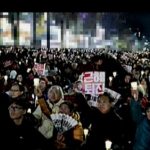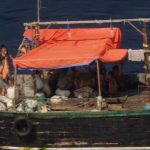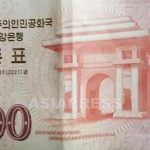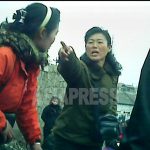The black market in North Korea–that was once small-scale and primitive–has grown hundreds of times bigger, within just a few years. The development of the black market occurred around the time when the nation was hit by massive social disruptions, colloquially called the “arduous march” in the 1990s. The force of the market economy has played a significant role in the North Korean economy. In North Korea, a a socialist nation, state-owned companies and state-owned stores have been in charge of production and the distribution of goods, respectively. However, the state-imposed monopoly of goods has become a dysfunctional system. Regarding both quality and quantity, people do not trust state-owned stores anymore.
◎ASIAPRESS rimjingang playlist>>
In October 2008 an ASIAPRESS reporting partner, Sim Ui-chun, filmed sellers in front of the Taesong market, Sariwon City. In the footage, the significance of the market economy in North Korea is obvious. Tens of women in the video–holding a list of goods–are sitting in front of their market stalls and waiting for customers. The majority of the products on the list are prohibited items in the state-owned stores. Even gasoline is sold through these markets, which individuals are not allowed to handle according to the state. Customers at these markets are retailers who will then go to other locations to establish wholesale. The market economy in North Korea has been developed and diversified, giving birth to the now de facto wholesale markets.
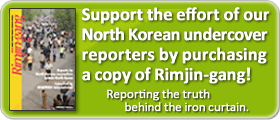 * Editor’s notes on North Korean reporters
* Editor’s notes on North Korean reporters
ARCHIVE(pdf) >>
DPRK MAP >>
